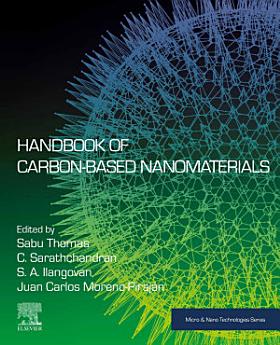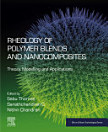Handbook of Carbon-Based Nanomaterials
About this ebook
About the author
Sabu Thomas is the chairman at the Trivandrum Engineering Science and Technology Research Park (TrEST Research Park) and the former vice chancellor at the Mahatma Gandhi University, Kottayam, Kerala, India. He is also the director at the School of Energy Materials, the School of Nanoscience and Nanotechnology, and the International and Inter University Centre for Nanoscience and Nanotechnology. Prof. Thomas is also the former director at the School of Chemical Sciences and the founder of the School of Polymer Science and Technology, Mahatma Gandhi University, Kottayam, Kerala, India. He received his Ph. D. in 1987 in Polymer Engineering from the Indian Institute of Technology (IIT), Kharagpur, India. He has been ranked no.1 in India about the number of publications (most productive scientists). Prof. Thomas’s research group specialized areas of polymers which includes Polymer blends, Fiber filled polymer composites, Particulate-filled polymer composites and their morphological characterization, Ageing and degradation, Pervaporation phenomena, sorption and diffusion, Interpenetrating polymer systems, Recyclability and reuse of waste plastics and rubbers, Elastomer cross-linking, Dual porous nanocomposite scaffolds for tissue engineering, etc. Prof. Thomas’s research group has extensive exchange programs with different industries, research, and academic institutions all over the world and is performing world-class collaborative research in various fields. Professors Centre is equipped with various sophisticated instruments and has established state-of-the-art experimental facilities which cater to the needs of researchers within the country and abroad. His H Index- 133, Google Citations- 86424, Number of Publications- 1300, and Books-160.
Dr. Sarathchandran C is an Assistant Professor of Chemistry, Department of Sciences, Amrita School of Engineering, Chennai, Tamil Nadu, India. He was previously Scientist (Contract) at Vikram Sarabhai Space Centre, Indian Space Research Organization, Trivandrum, India
S.A Ilangovan is Deputy Director at Vikram Sarabhai Space Centre in the Indian Space Research Organization, Trivandrum, India.
Juan Carlos Moreno-Piraján studied chemistry and obtained its PhD in Chemistry at the Universidad Nacional de Colombia and as of July 1995 he is linked to the chemistry department of the Faculty of Sciences of the Universidad de los Andes (Bogotá, Colombia). Obtaining a Magna Cum Laude grade both in his undergraduate thesis as well as in his PhD thesis. He is Director of the Porous Solids and Calorimetry research group. His area of interest is calorimetry applied to the characterization of porous solids, which he uses in the characterization of special materials. He designs and builds his own calorimeters in particular immersion and adsorption calorimeters. He has more than 350 publications on thermodynamics to his name




